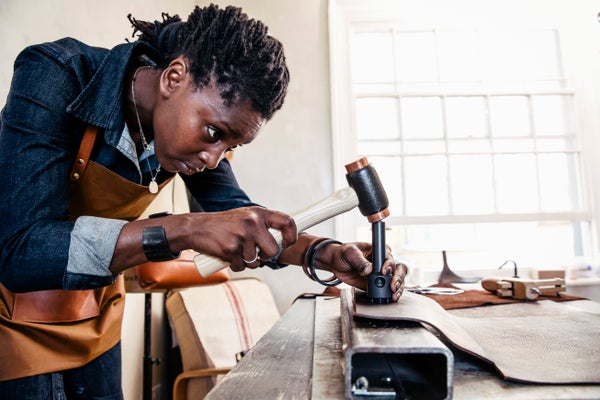This article was published in Scientific American’s former blog network and reflects the views of the author, not necessarily those of Scientific American
With gifting season coming up again, it may be time to dig out past ideas for STEM gifts that don’t come in boxes or require batteries. But what about the budding scientists in your life who aren’t quite so young? For an informal evening of problem solving, consider a trip to an escape room. For something a little more hands on, think about a cooking class or time at a local maker space. And don’t underestimate your local library, which can have courses on building websites, learning python, using a 3-D printer, or even circuits 101. Whether they are interested in astronomy or archeology, a mix-and-mingle or an in-depth class, there are programs out there designed for adult learners in your life. Here is a quick glimpse into just a few examples.
Think & Drink with the Extinct: Cleveland Museum of Natural History (Cleveland, Ohio) For anyone who might want to mix and mingle with curious adults, taste the wares of local breweries, and get an up-close view of the museum's dinosaur fossils. You can raise a glass to one of your oldest ancestors with Lucy, and look way back into local history with the Dunkleosteus. It provides a chance for adults to learn informally and explore the museum without the daytime chaos.
Senior Science Days: Dudley Observatory & the Museum of Innovation and Science (Schenectady, New York) The Dudley Observatory and miSci know that a love of science and learning lasts a lifetime. That is why they have designed programming specifically for senior citizens. Older learners can follow up a quiet afternoon at the museum with exciting astronomy lessons targeted just for them. They can learn about Jupiter, get an update on the Curiosity Rover, learn about getting humans to Mars, or even spend an evening learning about the origins of the universe.
On supporting science journalism
If you're enjoying this article, consider supporting our award-winning journalism by subscribing. By purchasing a subscription you are helping to ensure the future of impactful stories about the discoveries and ideas shaping our world today.
Community Archaeology Program for Adults: Binghamton University (Binghamton, New York) For those whose interests run more Indiana Jones than Jurassic Park, this program creates a chance for members of the public (ages 16 and up) to join a real archeological field project. Participants get to work alongside professional archeologists to help excavate at a nationally important site. They will build their own basic archeological skills and learn about the prehistory of New York State.
Adult Courses at the American Museum for Natural History (New York, New York) For those who miss the classroom, the AMNH offers courses designed for adult learning. They can learn how artists and scientists work together to rebuild the faces of our extinct human relatives – and build their own. They can learn about the science behind sleep and memory, explore the ways our brains translate information from our senses to perceptions in our brains, or even learn how to navigate through the Digital Universe to lead their own tour like the pros at Hayden Planetarium.
Twiga Adult Overnights: Cincinnati Zoo (Cincinnati, Ohio) Hors d-oeuvres and drinks and zoo animals – oh my! Go behind the scenes to learn about the animals and what it takes to care for them. Then enjoy a bonfire and spend the night in a tent. To finish up, share breakfast with your fellow adventurers and have a special close encounter with the giraffes. For 21+.
